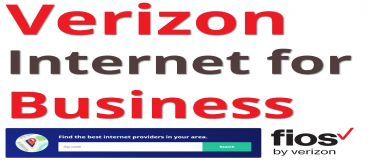Things to Consider Before Reopening Your Business in 2022

It's a difficult time to run a small business. There's a lot to think about when it comes to reopening your business to customers or expanding capacity in the face of changing public health guidelines. As cities around the United States reopen, you may be wondering whether you should still need staff and visitors to wear masks on the premises, what state and municipal regulations apply to your business, and how long this uncertain "reopening" phase will last.
Related
What Is the Best Way to Write a Small Business Plan?
Why You Should Start eCommerce For Your Business This 2021?
How to Market Your Business Using The Internet this 2021?
Here are three issues to think about as you reopen to ensure you have the safeguards and flexibility you'll need to respond to future public health threats.
What public-health best practices would you implement?
Although updating your employee handbook may not sound like much fun, it is a very useful practice. Put your new health and safety standards in writing to ensure that you've considered the consequences of the actions you'll be required, as well as how you'll convey them to staff and consumers.
If your intention is to just follow the policies of your local city or state, you should still examine OSHA's reopening advice, as these national work safety standards still applicable.
To stay on top of rules, you might want to establish a living, a digital document that refers to the current standards' webpage. Whatever method you use, your staff must understand what to do, how to do it, and why safety protocols are in place.
If you want to maintain social distance in the workplace, for example, you may need to reorganize cubicle areas or your storefront. Workers will need to know how to handle guests' spatial issues, and you'll need to devise a method for communicating those needs on the ground. For their safety, you may be obliged to provide PPE or other COVID-related goods.
Evaluate your small business insurance policy carefully.
When you applied for and obtained a PPP loan, discovered a niche in the pandemic market where your service filled a demand, or are simply brushing the dust off the counter for the first time since March 2020, your business has changed in the last year. It's critical that your insurance plans are up to date.
When you have your revised reopening plan and safety measures put in place, it's essential to double-check your insurance policy to make sure it meets state regulations and matches your new risk tolerance. You may want to investigate cyber insurance in addition to your business owner's coverage, given the recent rash of hacks we've witnessed around the country. If you offer professional or personal services, you may want to consider purchasing liability insurance.
Reopening Business Plan
You're not required to abandon your mask mandate or cease taking mail orders just because the local regulations have changed. Your reopening strategy should be unique to your company, and it should consider the needs of your staff and consumers.
Ask your staff and customers what they think about returning to in-person shopping and socializing if you're not sure how they feel. Using an informal survey to test your ideas about people's expectations for "the new normal" can help you better understand how to change your operations or product offerings to satisfy those expectations. Read our guide here (What Is the Best Way to Write a Small Business Plan?)
Related Posts
Mon, Apr 20, 2020 11:13 PM
Business Internet Guides for Entrepreneurs
Small businesses need to grow, but how big should your business become before you buy it online? Whether you started out as a sideshow or a brick-and-mortar business, successful small businesses are finding it increasingly difficult to decide when to shell out money for an Internet business.
Wed, Apr 22, 2020 11:34 PM
Find Verizon Internet for Business Near You!
Verizon provides Internet for business in more than 40 states in the US, speeds are limited to 15 Mbps, and many businesses will need more juice. If you're in the Northeast, you can enjoy high-speed Internet via Verizon's FiOS. This is ideal for businesses that need high speeds, such as restaurants, hotels, medical facilities, hospitals, schools, and other businesses.
Thu, Apr 23, 2020 12:00 AM
5 Best Small Business Internet Service Providers (2021)
The following Internet Service Providers are not listed in any particular order, but we have ranked these five companies as worthwhile due to some key factors such as speed, reliability, cost, and overall customer satisfaction.
Thu, Apr 23, 2020 11:52 PM
Why Business Internet is More Expensive Than Residential Internet
This question is asked so often today that it seems worth explaining, but here are 5 reasons why business Internet is more expensive than Residential Internet packages.
Fri, Apr 24, 2020 5:17 AM
Comcast Internet For Business: Internet, Phone, TV, and Other Solutions for your Business.
Comcast Business is US largest cable provider for small and medium-sized businesses and has become a force in the market, recognized by leading industry over the past two years as one of the fastest-growing providers of high-speed broadband to business customers




